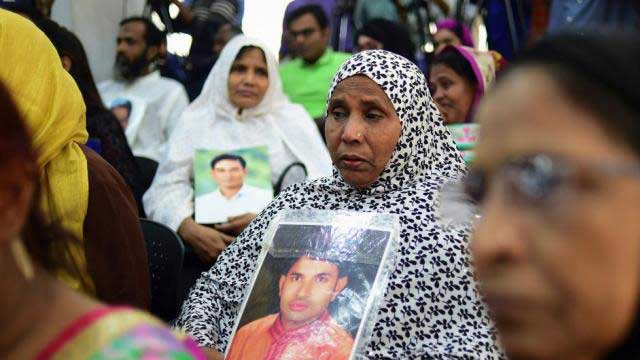The 2018 election was marred by serious allegations of electoral fraud, including attacks on opposition members, voter intimidation, and partisan behaviour by election officials, Human Rights Watch has observed.
In its World Report 2019: Reversing Autocrats’ Attacks on Rights, the New York-based rights group pointed out that authorities “violently cracked down on criticism of the ruling Awami League in advance of national elections in 2018”.
“Ahead of national elections scheduled for end December 2018, Bangladesh authorities detained or jailed senior members of main opposition parties, lodged politically motivated trumped-up cases against thousands of opposition supporters, and violated international standards on freedom of speech by cracking down on media and civil society critical of government abuses,” read the report released on Thursday.
The HRW, in its reaction days after the election, recommended formation of an independent and impartial commission to investigate into 'serious allegations of abuses' in the elections in Bangladesh.
The HRW mentioned the issue of jailing of Bangladesh Nationalist Party chairperson Khaleda Zia in what her supporters called politically motivated cases.
“The Awami League may have won the election, but to do so, the government criminalised free expression and lodged blatantly trumped-up cases against thousands of opposition supporters,” said Brad Adams, HRW Asia director. It appears, he added, that the government is “willing to abuse the rights of its own citizens to maintain its grip on power.”
The report said the security forces killed more than 100 people and arrested thousands in Bangladesh’s “war on drugs.” Student protesters were beaten up by ruling party supporters and were tortured in police custody, it added.
It mentioned that instead of responding to calls for accountability, “security forces engaged in violence, torture, enforced disappearances, and extrajudicial killings.” The victims included the political opposition, journalists, members of non-governmental groups, and students, the report added.
“The run-up to the 2018 general elections in Bangladesh laid bare the government’s increasing bent toward ruling with an iron-fist,” Adams said.
“The government needs to recognize the democratic value in free expression, rule of law, and a vibrant civil society.”
The HRW report further observed that there is a growing global trend to confront the abuses of headline-grabbing autocrats.
However, HRW executive director Kenneth Roth said, the big news of the past year is not the continuation of authoritarian trends but the growing opposition to them. “That pushback could be seen in efforts to resist attacks on democracy…”
The HRW report mentioned that the continued influx of Rohingya refugees since August 2017 from Myanmar created a severe strain on humanitarian and government aid agencies.
“The government obstructed certain infrastructure improvements in refugee camps, particularly in shelter and education, insisting that the solution to the refugee problem is for the Rohingya to return to Myanmar, where their lives and liberty are at serious risk,” the report added.
YS





